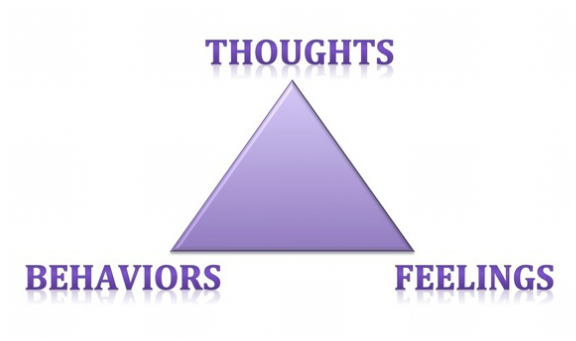|
Teen Girl Group!
Happening every Tuesday at 6 p.m. to 7 p.m. starting October 13, 2015 Location: 6101 Havelock Avenue, Suite 2A, Lincoln, NE What's the teen girl group? The teen girl group is an open group - meaning anyone can start at any time. The group is meant for girls ages 14-18 to address process together as group problems and feelings associated with teenage years. Groups will be max 12 girls at a time. What will be the main focus? The group will mostly be open-process style - any topic can be addressed by different members of the group. Group members can come to talk about problems or successes they may have had this week. Topics can focus on issues such as self-esteem, social skills, anxiety/depression, emotion regulation, relationship issues, communication, etc. The therapist may also bring in activities and psychoeducation on similar topics. Activities and education may consist of relaxation, visualization, coping skills, thinking skills, etc. How can I benefit from group? Girls in the group will benefit from being able to relate to one another and discuss important issues that happen on a day-to-day basis. Girls will also be able to develop appropriate and healthy relationships with each other working on building relationships and confronting issues that may arise in the group in an appropriate manner. How do I join the group? Members are required to meet with the therapist before starting sessions. Intake sessions last about an hour. The purpose of the intake is to assess the appropriateness of the group member as well as to develop some rapport with the therapist and help her to understand related problem areas to focus on in group. How much does it cost? Intake sessions cost $30. Intakes last about a half hour. Group sessions after initial intake cost $20 a session. No insurances are accepted at this time for group sessions. Do I need to be seeing a therapist before joining? Members of the group do not need to be seeing a therapist, but it is highly recommended that you do to work on things individually as well. The therapist will see you individually if that is something you need and it is a good fit. The therapist can also provide you list of other therapists available if needed. Where do I sign up? Email or call the therapist to schedule an intake! Therapist will get back to you within 24 hours.  When I was researching quotes for the last blog I ran into another one: "Happiness is when what you think, what you say, and what you do are in harmony." - Mahatma Gandhi This quote reminded me of a simple tool that everyone can use to try to experience more happiness or change negative emotions into positive emotions. In the past I have explained a little bit about cognitive behavioral therapy. Here is a different explanation that will also help you to manage moods, thoughts and behaviors as well. Below is a visual explanation. On top is our thoughts. Those are typically that is most noticeable when trying to understand what is going on. Our thoughts are so powerful and create a filter that affects how we see everything and as a result, how we feel. On the bottom of the triangle is feelings and behaviors, which again, are affected by our thoughts as well. Everything is all related to one another To put it all together here is an example that everyone might be able to relate to. You walk into a room by yourself and see everyone congregating in the corner and talking. When you walk closer the conversation stops. Two options are possible - One: Most people often jump to the conclusion that "They are talking about me. They are saying negative things about me. They don't like me. I should leave." Those are the automatic negative thoughts that often happen. The resulting feelings can be inferior, alone, afraid, and worthless. The behavior that can result is you stand there and not participate in the conversation or you might even listen to yourself leave. The second possibility is you can change the automatic negative thoughts that are happening. Instead of thinking negatively you can think something like this "They want to include me in the conversation. They were waiting for me. I can just jump in to this conversation too. I am happy to be here." The feelings from these thoughts are the exact opposite of what happened with the negative thoughts - happiness, excitement, and joy. The behavior that happens is probably smiling, engaging with other people and being outgoing. We have absolutely no evidence to support any of our negative thoughts, so the best way to go will always be positive so you don't have to miss our on a perfectly good opportunity! The best part about the triangle is that it can be flipped. Any side can be on top and any of the three parts can be changed in order to change your feelings, thoughts and behaviors. Relating this back to the quote - you really do need all of them to be aligned in order to feel true happiness and be able to change your whole being to be more positive. Sometimes it takes something simple to make our changes! Here are 10 great quotes to help build yourself and your mental health.
"Why fit in when you were born to stand out?" - Dr. Seuss "You can't start the next chapter of your life if you are re-reading the last one." "To be yourself in a world that is constantly trying to make you something else is the greatest accomplishment." - Ralph Waldo Emerson "You are confined only by the walls you build yourself." "Worry is like a rocking chair, it will give you something to do, but it won't get you anywhere." - Vance Havner "Life is like photography. We develop from the negatives." "Every strike brings me closer to the next home run." - Babe Ruth "Look in the mirror... that's your competition." "The problem is not the problem. The problem is your attitude about the problem." - Captain Jack Sparrow "We become what we think about." - Earl Nightingale Self-talk is our steady stream of thoughts that happen in your head. It's those thoughts while you're not speaking; it's the dialogue or statements going on in your head. Self-talk can be positive or it can be negative. Hopefully you have more positive self-talk than negative self-talk, but most times that is not the case.
Negative self-talk specifically is related to the automatic negative thoughts that we might have about ourselves or the immediate response in our head after something has happened to us. It's the "Oh no, s/he thinks I'm an idiot. I'm starting to feel sick about this." Or even further and in the deepest part of our mind "I'm worthless and no one cares about me." This can originate from something we might have heard from others or past experiences. It also tends to be repeated often. I found a brilliant quote the other day about self-talk - "You've been criticizing yourself for years and it hasn't work. Try approving yourself and see what happens." - Louise Hay. This is exactly what needs to happen. Give yourself a break and credit for the good things that you do! Start turning these negatives into positives and help build up things such as self confidence and self-esteem. One challenge that you can do it look at yourself in the mirror. Practice repeated statements over and over again such as the ones below. If you can, give a different example each time that you try it. 1. I am a strong person. I was strong when ... 2. I am capable of being happy. A time when I was truly happy was ... 3. I am a good (friend, mother, sibling, spouse, etc.) A time when I was this was ... 4. I am capable of making decisions myself. A time I made a good decision was ... 5. I am lovable. People who love me without hurting me are ... 6. I am talented. One thing I am good at is ... 7. I have strengths. One of my many strength is ... There are several positive statements that might fit yourself, so speak to what fits your current negative self-talk. The most important part is saying it out loud. Not just in our head. Saying it out loud will help you start to believe it by putting it out there. Watching yourself is also important to gauge your own response and see the smile that it hopefully brings out in you and a positive change that you can make for yourself. Be nice to yourself, you're the only you there is and often times we're our worst critics. The school year is quickly approaching again! This was the most exciting time of the year for me as a child, but starting a new school year can also be very anxiety provoking for a lot of kids. Here are 12 tips to hopefully make that transition as smooth as possible for your kids.
There is so much research currently that identifies the negative effects of technology and device usage in children, but what about our families? This blog idea came to me when my own toddler came up to me one day and looked at my computer, said, "Mommy, off," made a motion as if she was about to close my lap top, and grabbed my hand to get me to go play with her. I hadn't realized until that moment but I really had been on my computer a lot that day. How sad that she had to point that out before I even realized that myself.
How much time are we on our own devices and not spending time with our family? I've also heard from several patients in the past who have mentioned several things such as "I wish the internet had never been invented" because their parents spend so much time sitting on the internet rather than spending time with them. Sometimes those are extreme examples that I hear, but it affects us all still the same. Jan Cloninger and Rosemary Strembicki, LCSW posted an article (link here) through huffingtonpost.com that looks at the effects of technology on not only children, but also families. They listed several great questions that we can use to analyze our own usage, but I chose two very powerful questions below and added a few of my own. * Is family time interrupted because of electronics? * What kind of messages are you sending to your children about using electronics? * How much electronic time is there versus family time? * What's the first thing you do when you get home? Is it get online or is it speaking with our kids? They also provided several helpful suggestions for changes that I have made some adaptations to as well. * Have a basket at your front door to deposit electronic devices. This is for parents and kids. Devices can be allowed after things such as homework are done and dinner is finished to allow more quality time together and to manage priorities appropriately. * Use this as a teaching tool to help set limits. Kids learn directly from watching parents, set limits for yourself as well as them to provide an appropriate example. * Make things such as television or movies a family event to talk about what you've watched and how it relates with family values and beliefs. * Engage in family conversation more by setting your devices aside. Through research and scanning internet pages, I came up with several articles that had great examples of how powerful devices can be and the effects on family - both positive and negative. I have listed them below in case readers are interested in other resources. Ultimately though, what is more important? Our technology or our family? Where can we start to make even the smallest changes to make a difference? I'm definitely no fanatic or a stranger to this problem myself, but I do hope to make my own smaller changes for the strength of my family. Feel free to share any comments or changes you might have made! Resources: How Our Digital Devices are Affecting Our Relationships Digital Age Affects Family Time and Relationships Put Down that Cellphone! Safety planning and crisis management is important to everyone. There are going to be times in everyone’s lives that are ‘times of crisis.’ A time of crisis happens when people feel things are spiraling out of control, they don't feel like themselves and people become unsafe. Self-harming or suicidal thoughts may pop into our heads and we need to have a safety or crisis plan in place so we don’t act on them. Here are a few important pieces to crisis management.
1) Identify your warning signs What does it look like when you are well? What does it looks like when you are not well? Be able to identify those changes in such things such as sleeping patterns, eating patterns, cleanliness behaviors, mood changes, and changes in thought patterns. 2) Identify coping skills What can you do to try and either distract yourself or take your mind off of these thoughts? Coping skills are very personal and what works for one person may not work for another. Coping skills can be listening to music, deep breathing, taking a walk, writing, taking a bath, etc. Write out a long list so that you have lot of options to choose from during rough times. 3) Identify people you can talk to Who are the people you can trust with anything? Who do you turn to in times of trouble? These can be friends, family, or professionals. If they are professionals though, understand these people are not available 24/7 so identify more than just professionals. Don’t be afraid of “bugging” your support systems too much or worrying they may be too busy. They’ll be there for you whenever you need them. I know if a friend or family member told me they were feeling unsafe I would drop everything to help them out, no questions asked. 4) Put yourself in a safe environment Take yourself out of the problem environment. Don’t isolate and don’t stay in your home alone. Take a walk, visit a library, go to the mall. Go somewhere public where you are less likely to do anything to harm yourself. Just surrounding yourself with people is enough and taking yourself away from any knives, sharps, guns, medications, or other tools is important for safety. 5) Identify one thing that is most important to you and worth living for It’s pretty simple. Just one thing can help us get over that hump. Identify that one person, or that one thing that is happening in the future that is pretty exciting. Just one thing makes it completely worth it and helps to manage those thoughts. 6) Go to a hospital or call 9-1-1 After you’ve exhausted this list and you’re still feeling unsafe go to a hospital and get checked out. Professionals are always available to help and there is always a safe place to go in a medical center. Most cities have acute care units where people can go for exactly this reason. You might find people who are experiencing some of the exact same things you are. Crisis times happen, just have a safety plan in place for when it comes around. And know that it's ok to ask for help. Other resources: Suicide Prevention Lifeline Phone: 1-800-273-TALK (8255) http://www.suicidepreventionlifeline.org http://www.nimh.nih.gov/health/topics/suicide-prevention/index.shtml  Image courtesy of Ambro/FreeDigitalPhotos.Net Image courtesy of Ambro/FreeDigitalPhotos.Net I recently posted a blog post about bullying. In it I talked about what bullying is exactly. Let me first start out by reviewing some of that information. Bullying can take the form of physical, verbal or relational repeated behaviors towards another person. What most kids don't really is bullying can also be emotional which also consists of things such as name-calling, teasing, taunting, harassing, stealing, hazing, spreading rumors, excluding people or spreading lies. This can happen in person or online through cyber bullying. Most children often think of bullying as strictly physical and only recognize outright "meanness" happening. But a lot of kids (or adults for that matter) may actually be bullies themselves without realizing it. Here are some questions kids can ask themselves or parents can ask their kids to keep bullying in check. 1. Do I put people down to feel better about myself? Where do your self-esteem come from? Does it come from others and putting other people down or does it come more from yourself? Are you proud of yourself no matter what you do? Someone who puts others down excludes other people at times because they do not want to be seen with them and they do not "fit in" as much. 2. Do I listen to people and respond appropriately? Do I show empathy and understanding about people? Am I generally interested in what they have to say and want to help them? Do I generally care about them or do you give them automated responses? Other people make fun of others while they are talking or constantly interrupt them. That can be seen as bullying. 3. Do I want to be seen as tough? Do you have more leadership qualities or are you the "tough" bully? If you use physical control and power to get your way such as shoving, taking, stealing, throwing, or teasing in a mean way then you might want to be seen as tough. A leader wouldn't have to do anything like that. Or they might stop something like that from happening. 4. Do I "call the shots" just because I can? Do you boss people around just because you can and they are listening to your demands? Are you manipulative at times to get your way? Just because you can do something doesn't mean you necessarily should. It's ok to have that power and natural leadership ability, but again, doesn't mean it has to be used that way. 5. Do people trust me and come to me for advice? You can't be a bully if this is true. Nobody wants to come to someone else if they are just going to be put down. Not many people open themselves up to that. If you generally care about people, it shows. 6. Do I have an appropriate sense of humor? By appropriate I mean not being rude or sarcastic while people are talking. Without meaning to kids sometimes make people laugh often at someone else's expense, especially at school. It's ok to make people laugh, but unnecessary to hurt someone else in the process. 7. Have I bullied anyone online? Saying things someone you wouldn't say in person, sending out hidden messages in status updates or comments, spreading messages, or looking at someone else's profile and teasing them behind their back with some of your other friends is actually cyber bullying. 8. Do you resolve conflicts appropriately? The appropriate way to resolve conflict would be to confront the problem at the source directly. This does not include fighting or getting revenge either by yourself or through someone else. It also does not mean spreading rumors again, at the expense of someone else no matter how much they hurt you or have done something to wrong you. 9. Am I a bystander? Do you sit by and watch some of these things happen without stopping them? Or are you the type of person to stop it in its tracks. A bystander is a bully by default or association. Most of us are probably not "bullies" but I bet there are elements in there that might ring true. This might be something you may be doing or have done in the past. Even as a therapist, I can admit that there are times in my past and sometimes even now when I am not as nice as I could be and may be a bully without realizing it. It's ok to make mistakes, but the important thing is what are we doing to reconcile our mistakes. Or as parents, how are we teaching our children to correct these mistakes and stop being a bully? It's nice to be important, but it's more important to be nice. What you say and do sticks with people and creates a lasting image for yourself and for their self and sense of self-worth. Let's all work to build each other up and not bring each other down. |
Categories
All
Archives
April 2016
|





 RSS Feed
RSS Feed
